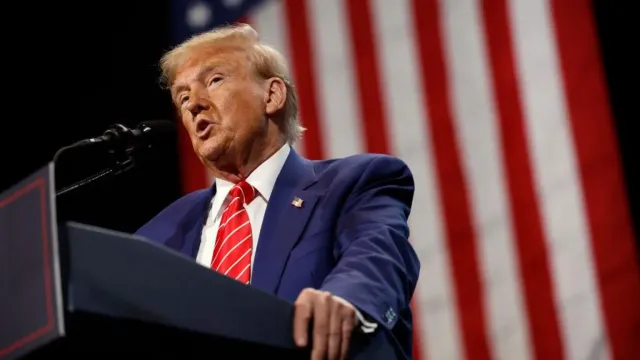The United States Congress, under Republican control, has approved a contentious budget that paves the way for extending President Donald Trump’s 2017 tax cuts through 2034, a move Democrats have slammed as a windfall for the wealthy at the expense of essential public services. The budget blueprint, passed by both chambers, unlocks trillions of dollars for Trump’s agenda and raises the borrowing limit by Ksh.648 trillion, a figure that mirrors the projected increase in national debt.
House Speaker Mike Johnson hailed the budget as a fulfillment of Trump’s campaign promises, describing it as a step toward a more “efficient, effective, and leaner” government. The resolution includes targeted spending cuts of Ksh.519 billion, but Johnson and other Republican leaders have pledged to push for even deeper reductions totaling Ksh.194 trillion with Ksh.113 trillion of those cuts expected to come from Medicaid, the federal healthcare program for low-income families.
Critics argue that the resolution is a gateway to implementing the far-right “Project 2025” manifesto developed by the Heritage Foundation, which aims to drastically shrink federal bureaucracy and social programs. Democrats warn this will erode protections for vulnerable populations, including seniors and the disabled who rely on Social Security and Medicaid.
House Minority Leader Hakeem Jeffries condemned the move, accusing Republicans of orchestrating the largest Medicaid cut in American history to finance tax breaks for billionaires like Elon Musk. He warned that the GOP’s fiscal blueprint prioritizes wealthy donors over working families and labeled it a betrayal of promises to tackle the cost-of-living crisis.
Despite passing the Senate comfortably, the budget faced pushback in the House from hardline fiscal conservatives who wanted deeper cuts. Johnson’s public commitment to pursue the larger Ksh.194 trillion target helped quell the internal revolt and secure final passage.
This budget resolution represents a major victory for Trump as he seeks to consolidate support ahead of the 2024 election. However, it also exposes deep divisions within the Republican ranks and sets the stage for fierce political battles over the future of federal spending and taxation.

